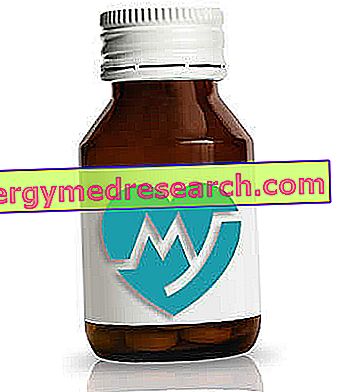
What is Scintimun?
Scintimun is a kit for the preparation of an injectable radioactive solution. Contains the active substance besilesomab.
What is Scintimun used for?
Scintimun should not be used on its own but should be radiolabelled before use. Radiolabelling is a technique used to mark (mark) a substance with a radioactive compound. Scintimun is radiolabelled by mixing it with a solution of radioactive technetium (99mTc).
Scintimun is for diagnostic use only. It is used to localize areas of infection / inflammation in adults with suspected osteomyelitis (bone infection) in the limbs, in combination with other specific methods of diagnostic imaging.
Scintimun should not be used to diagnose diabetic foot infections (an infection that occurs in the feet of patients with diabetes).
The medicine can only be obtained with a prescription.
How is Scintimun used?
Scintimun should only be used in hospitals equipped with a nuclear medicine department and should only be handled by authorized personnel.
A radioactive solution with Scintimun is obtained by mixing the powder and solvent supplied in the kit and then radiolabelling it with technetium (99mTc). The solution is administered to the patient with an injection into a vein. The amount of besilesomab injected is between 0.25 and 1 mg, depending on the amount of radioactivity needed.
Between three and six hours after the injection, the doctor acquires images of the limbs (scans) to locate the areas of the bones affected by osteomyelitis.
How does Scintimun work?
The active substance in Scintimun, besilesomab, is a monoclonal antibody. A monoclonal antibody is an antibody (type of protein) that was designed to recognize and bind to a specific structure (called an antigen) that is found in the body. Besilesomab was designed to bind to an antigen called NCA-95, which is present on the surface of granulocytes, a type of white blood cell involved in inflammation and defense against infection. When Scintimun is radiolabelled, the technetium radioactive compound (99m Tc) binds to besilesomab. When the radiolabelled medicine is injected into the patient, the monoclonal antibody brings the radioactivity to the target antigen on the granulocytes. Since granulocytes accumulate in large numbers at the site of an infection, radioactivity accumulates in areas affected by osteomyelitis, where it can be detected through diagnostic images. The images show where besilesomab has accumulated which the doctor will use to locate areas of infection / inflammation.
How has Scintimun been studied?
The effects of Scintimun were first tested in experimental models before being studied in humans. In a main study involving 130 patients who had or suspected limb osteomyelitis, Scintimun was compared to a medicine containing technetium-radiolabelled white blood cells (99m Tc). Both techniques were used in each patient to diagnose and localize osteomyelitis and the images obtained from the individual patient were then compared. The main measure of effectiveness for Scintimun was based on the extent to which the evaluation of images obtained with Scintimun agreed with that obtained with radiolabelled white blood cells.
What benefit has Scintimun shown during the studies?
Scintimun produced results comparable to those of radiolabelled white blood cells if used to diagnose and localize osteomyelitis of the limbs. The percentage of agreement was 83%.
What are the risks associated with Scintimun?
The most common side effect with Scintimun (seen in more than 1 patient in 10) is the production of anti-mouse antibodies. For the full list of all side effects reported with Scintimun, see the Package Leaflet. Scintimun should not be used in people who may be hypersensitive (allergic) to besilesomab, other murine antibodies or any of the other substances. Scintimun should not be used in patients who are positive for the human anti-mouse antibody test (HAMA) and should not be used in pregnant women. As with all radioactive substances used in medicine, patients should be exposed to the minimum possible dose of Scintimun.
Why has Scintimun been approved?
The Committee for Medicinal Products for Human Use (CHMP) decided that Scintimun's benefits are greater than its risks. The Committee recommended that Scintimun be given marketing authorization.
More information on Scintimun
On 11 January 2010 the European Commission issued a marketing authorization for Scintimun to CIS bio international, valid throughout the European Union. The marketing authorization is valid for five years and can be renewed upon expiry.
For the full EPAR of Scintimun, click here.
Last update of this summary: 11-2009.



